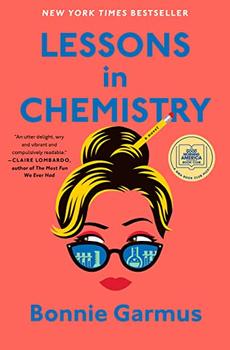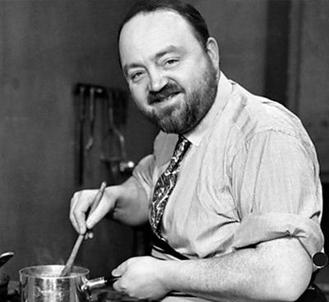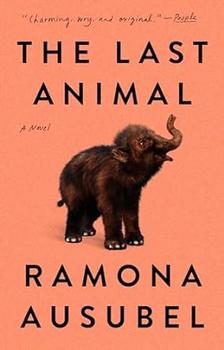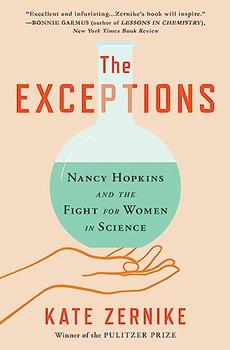Summary | Excerpt | Reading Guide | Reviews | Beyond the book | Read-Alikes | Genres & Themes | Author Bio

A Novel
by Bonnie GarmusA must-read debut! Meet Elizabeth Zott: a "formidable, unapologetic and inspiring" (Parade) scientist in 1960s California whose career takes a detour when she becomes the unlikely star of a beloved TV cooking show in this novel that is "irresistible, satisfying and full of fuel. It reminds you that change takes time and always requires heat" (The New York Times Book Review).
New York Times Bestseller • Good Morning America Book Club • One of NPR's Best Books of 2022 • One of the Most Anticipated Books of the Year—New York Times, Bustle, Real Simple, Parade, CNN, Today, E! News, Library Journal
Chemist Elizabeth Zott is not your average woman. In fact, Elizabeth Zott would be the first to point out that there is no such thing as an average woman. But it's the early 1960s and her all-male team at Hastings Research Institute takes a very unscientific view of equality. Except for one: Calvin Evans; the lonely, brilliant, Nobel–prize nominated grudge-holder who falls in love with—of all things—her mind. True chemistry results.
But like science, life is unpredictable. Which is why a few years later Elizabeth Zott finds herself not only a single mother, but the reluctant star of America's most beloved cooking show Supper at Six. Elizabeth's unusual approach to cooking ("combine one tablespoon acetic acid with a pinch of sodium chloride") proves revolutionary. But as her following grows, not everyone is happy. Because as it turns out, Elizabeth Zott isn't just teaching women to cook. She's daring them to change the status quo.
Laugh-out-loud funny, shrewdly observant, and studded with a dazzling cast of supporting characters, Lessons in Chemistry is as original and vibrant as its protagonist.
Chapter 1
November 1961
Back in 1961, when women wore shirtwaist dresses and joined garden clubs and drove legions of children around in seatbeltless cars without giving it a second thought; back before anyone knew there'd even be a sixties movement, much less one that its participants would spend the next sixty years chronicling; back when the big wars were over and the secret wars had just begun and people were starting to think fresh and believe everything was possible, the thirty-year-old mother of Madeline Zott rose before dawn every morning and felt certain of just one thing: her life was over.
Despite that certainty, she made her way to the lab to pack her daughter's lunch.
Fuel for learning, Elizabeth Zott wrote on a small slip of paper before tucking it into her daughter's lunch box. Then she paused, her pencil in midair, as if reconsidering. Play sports at recess but do not automatically let the boys win, she wrote on another slip. Then she paused again, tapping her pencil ...
Bonnie Garmus's debut, Lessons in Chemistry, introduces readers to an exceptional woman struggling to succeed in a male-dominated field. Garmus sets her novel in the days before the Equal Rights Amendment and the #MeToo movement, when most men — and many women as well — believed that any woman who dared to enter a traditional men's profession was either "a lightweight or a gold digger," in the author's words. One might assume the novel is a dark, weighty exploration of the sexual discrimination rampant during the 1950s and early 1960s. Amazingly, it's really not; although the book's substance depends largely on this theme, its overall tone is positive and affirming...continued
Full Review
(766 words)
This review is available to non-members for a limited time. For full access,
become a member today.
(Reviewed by Kim Kovacs).
 Claire Lombardo, author of The Most Fun We Ever Had
Lessons in Chemistry is a breath of fresh air—a witty, propulsive, and refreshingly hopeful novel populated with singular characters. This book is an utter delight—wry, warm, and compulsively readable.
Claire Lombardo, author of The Most Fun We Ever Had
Lessons in Chemistry is a breath of fresh air—a witty, propulsive, and refreshingly hopeful novel populated with singular characters. This book is an utter delight—wry, warm, and compulsively readable. Maggie Shipstead, author of Great Circle
It's the world versus Elizabeth Zott, an extraordinary woman determined to live on her own terms, and I had no trouble choosing a side. Lessons in Chemistry is a page-turning and highly satisfying tale: zippy, zesty, and Zotty.
Maggie Shipstead, author of Great Circle
It's the world versus Elizabeth Zott, an extraordinary woman determined to live on her own terms, and I had no trouble choosing a side. Lessons in Chemistry is a page-turning and highly satisfying tale: zippy, zesty, and Zotty. Nigella Lawson, author of Cook, Eat, Repeat
I loved it and am devastated to have finished it.
Nigella Lawson, author of Cook, Eat, Repeat
I loved it and am devastated to have finished it. Rachel Yoder, author of Nightbitch
On par with Beth Harmon of The Queen's Gambit, Elizabeth Zott swept me away with her intellect, honesty, and unapologetic selfhood. Lessons in Chemistry is a story for all the smart girls who refuse to dumb themselves down despite a culture that demands otherwise. Though a creation of the 50s & 60s, Zott is a feminist icon for our time.
Rachel Yoder, author of Nightbitch
On par with Beth Harmon of The Queen's Gambit, Elizabeth Zott swept me away with her intellect, honesty, and unapologetic selfhood. Lessons in Chemistry is a story for all the smart girls who refuse to dumb themselves down despite a culture that demands otherwise. Though a creation of the 50s & 60s, Zott is a feminist icon for our time. In Lessons In Chemistry, the main character is the reluctant host of a popular TV cooking show.
In Lessons In Chemistry, the main character is the reluctant host of a popular TV cooking show.
Gordon Ramsay, Bobby Flay and Rachael Ray are just a few of the many modern TV chefs who’ve become household names. Cooking shows are now not only daytime television staples; they're featured in the primetime lineup. Such was not always the case.
The first cooking shows were produced for the radio. Dr. Édouard de Pomiane, a French food scientist and writer, hosted what's likely the first, starting in 1923. His weekly program on Radio Paris featured stories about his experiences in the kitchen as well as recipes for home cooks.
U.S. advertisers soon took notice of the program's popularity. In 1921, food ...
This "beyond the book" feature is available to non-members for a limited time. Join today for full access.

If you liked Lessons in Chemistry, try these:

by Ramona Ausubel
Published 2024
A playful, witty, and resonant novel in which a single mother and her two teen daughters engage in a wild scientific experiment and discover themselves in the process, from the award-winning writer of Sons and Daughters of Ease and Plenty

by Kate Zernike
Published 2024
From the Pulitzer Prize–winning journalist who broke the story, the inspiring account of the sixteen female scientists who forced MIT to publicly admit it had been discriminating against its female faculty for years—sparking a nationwide reckoning with the pervasive sexism in science.





